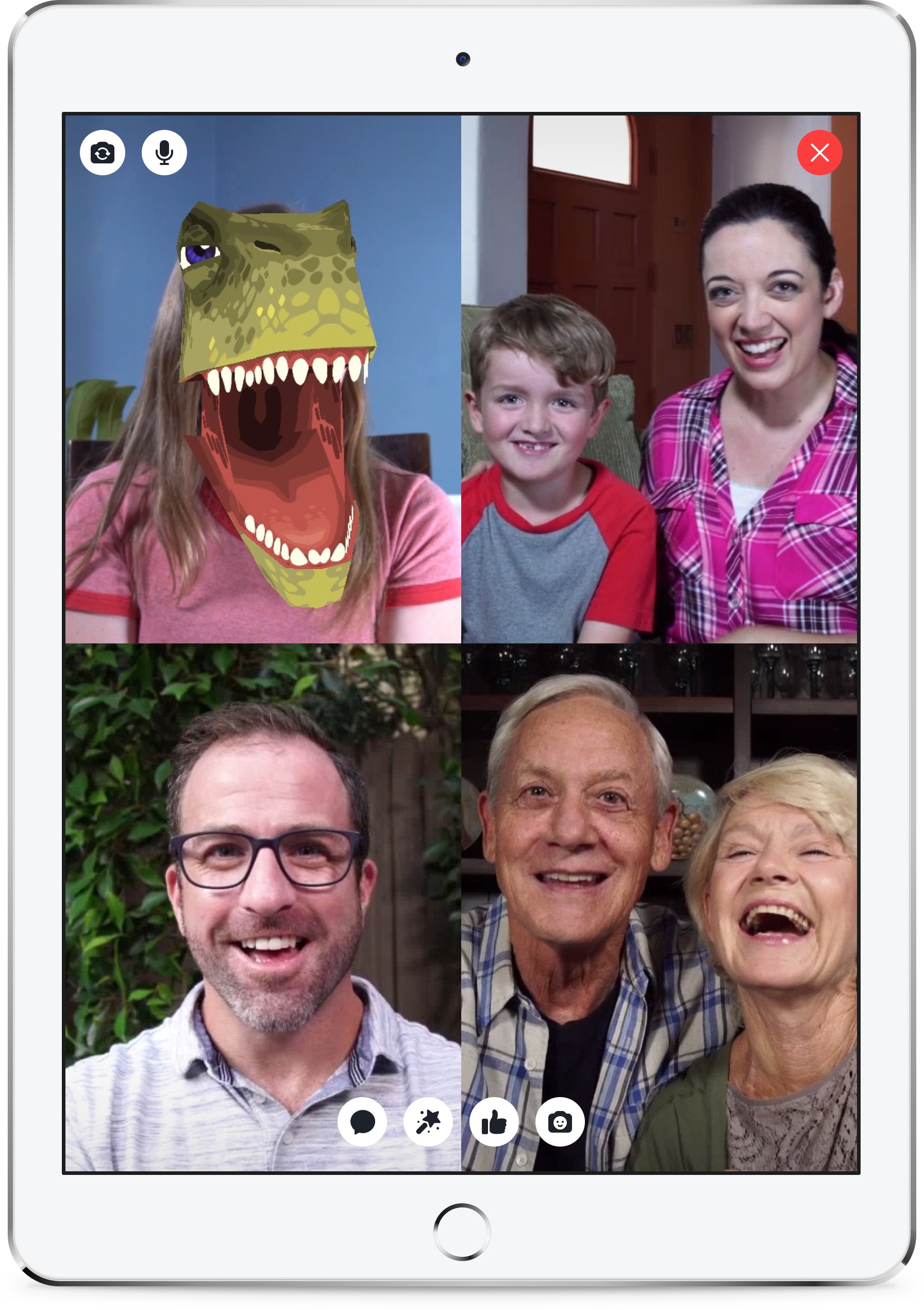
While the idea of young children engaging in direct messaging may give some parents pause, recent research suggests that certain apps and platforms are more useful than others when it comes to, say, maintaining long-distance friendships after a big move or connecting with grandparents in a different time zone.
In fact, most experts agree that when kids actively participate in video calls with loved ones, they add lasting value to those relationships. New video chat apps make those types of interactions easier than ever, by giving children ages 6 and older a controlled environment in which to connect over chat and video.
"Fifty to 100 years ago, families lived closer together. Parents today may be far away—a parent could work in a different city Monday through Friday—and video chat gives children a way to form important relationships," says Matthew C. Fadus, M.D., general psychiatric resident at the Medical University of South Carolina.
Here are some of the best ways you can use technology to help your little one strengthen friendships and familial bonds:
1. Introduce them early.
The American Academy of Pediatrics recommends children younger than 18 months avoid the use of screen media altogether, but it makes an exception for video chat. That's because the organization places value on face-to-face conversation, stating that very young children learn best through two-way communication, even if there is a screen between them and the other person.
In 2016, researchers at Lafayette College studied 1- and 2-year-olds who watched one week of either real-time video conversations or pre-recorded videos as the person on the other end of the screen taught "novel words, actions, and patterns" and found that those interacting with the live version gleaned new cognitive information and learned to recognize people they had previously only 'met' via video-chat.
2. Define quality screen time.
Not all screen time is equal. The negative effects of screen use—poor sleep quality and depressive symptoms, according to a study presented at the 32nd Annual Meeting of the Associated Professional Sleep Societies—appear "to be much more strongly associated with the quality of the interaction rather than actual screen time," says Dr. Fadus. When used appropriately, screen time and media can be beneficial children, teaching them about social interactions and the world around them. While video-chatting is OK for young children, consider your child's age and ability to comprehend complex plot lines before setting up a screen time and media plan for your family. Look to organizations like Common Sense Media for approval ratings of apps, games, websites, TV, and movies that are appropriate and even beneficial for children. The AAP then suggests co-viewing these shows with your kids and engaging them in conversations to make each episode interactive.
3. Discuss 'active' use of technology.
"There's an opportunity to define how we think about different uses of screen time," says Jason Kahn, Ph.D., a researcher at Boston Children's Hospital and co-founder of Mightier, bioresponsive video games that help kids develop emotional coping skills. "When it's spent in front of the TV, you're being a passive consumer of content, but using a screen for educational purposes—to read literature, learn math, or even engage in physical activity—is active."
Talk to your kid about what constitutes a meaningful interaction. Scrolling through Instagram? That can feel passive. Video chatting with grandma and grandpa who live across the country? That can be very important to your child's sense of multi-generational connectedness.

4. Monitor their contact list and conversations.
Safety is always the priority. With Messenger Kids, parents approve each contact before they can chat with their children, and can remove any contact at any time, for any reason. There's transparency in conversations, too, because messages never disappear and can't be hidden from parents.
5. Watch for warning signs.
"When the amount of screen time begins to interfere and replace other activities that are important for normal development, there's a problem," says Dr. Fadus. With Messenger Kids, for example, if you're concerned about excessive screen use, Sleep Mode allows you to limit when your kids use the app.
